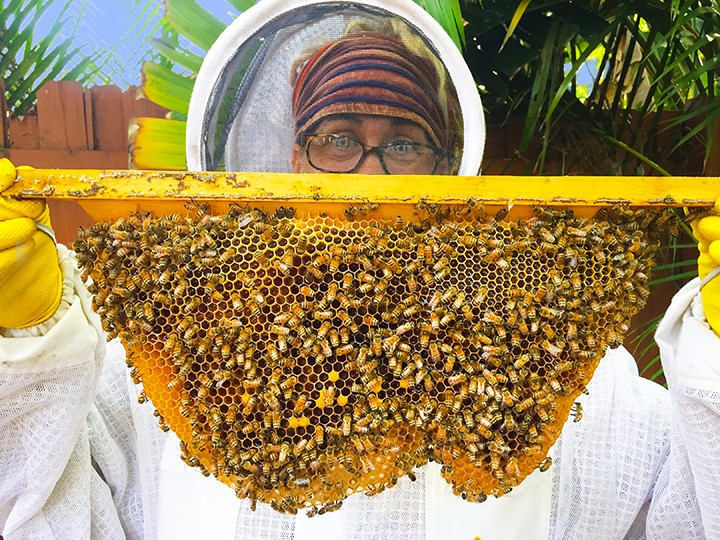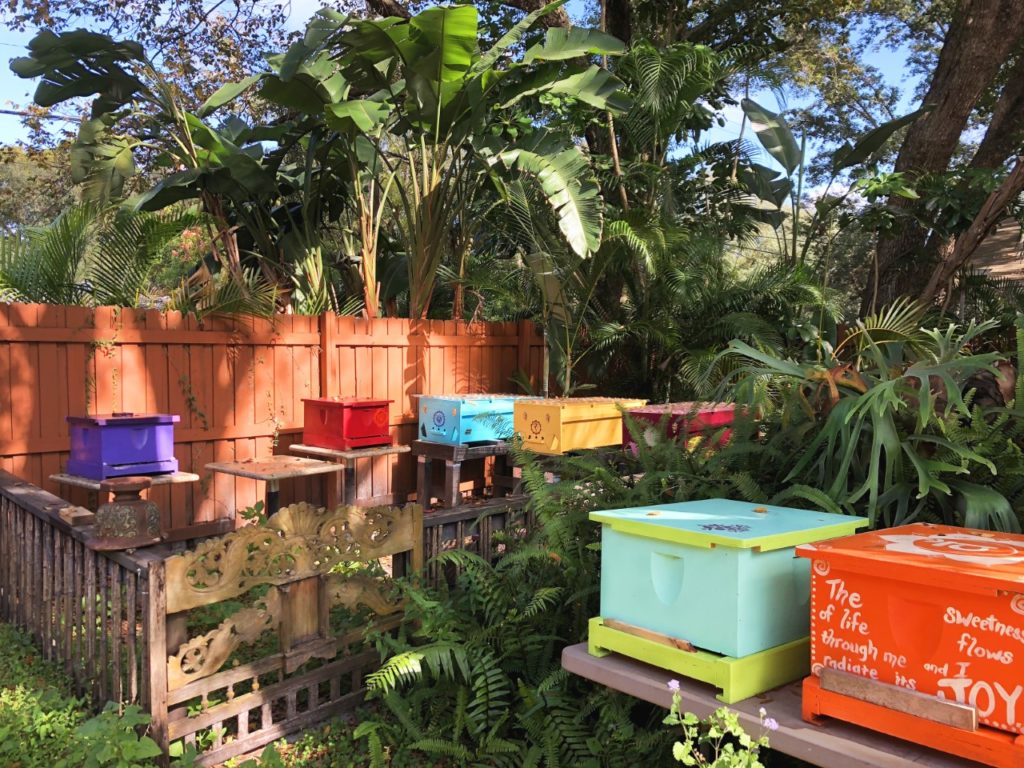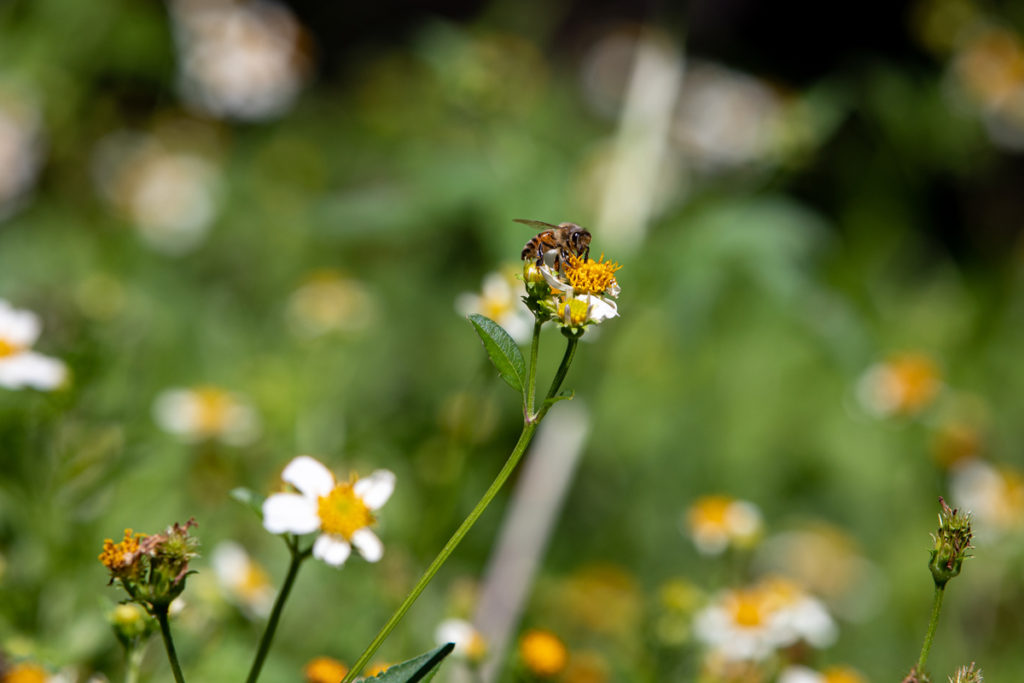
Spring has arrived, and that means allergens. Sneezing, eye-watering and other fun facial discharges are happening en masse in Greater Tampa Bay. Fortunately, the holistic gurus at Roots and Ritual have a trick or two up their sleeves involving the use of honey for managing allergies. Sandra Hein and Amber Wilson are beekeepers and apitherapists at R&R. Apitherapy is an alternative therapy using products sourced from honeybees.
These professional beekeepers were kind enough to let GTB in on Mother Nature’s favorite allergy remedy — honey. This naturally anti-inflammatory food is wonderful for soothing inflamed sinuses.
For any skeptical readers out there, the ladies at R&R offer some science-based advice.
“Our grandmother’s old adage, ‘a teaspoon a day,’ is no joke,” Hein and Wilson said. “The micro-particles in pollen are present in the honey we consume. Eating honey exposes our immune systems to those pollens, allowing our bodies to build up a resistance to them.”

Anti-Allergy Features To Look For
Do not just grab any old jar of honey off the shelf. There are three factors to look for in the ideal anti-allergy honey:
- Raw honey
Honey should be raw in order to combat allergies. Pasteurization filters pollen, micronutrients and key enzymes right out of the honey content. In essence, it gets rid of all the good stuff.
- Local honey
Why not get the goods from another hood? Because the allergens and pollen from non-local honey are of little use to someone here in GTB. Only local honey fights local allergies.
It is also good practice in general to support local beekeepers, lest local bees are left to their own devices. Who knows what those little monsters will get up to?
- Wildflower honey
Wildflower honey is best for anti-allergy purposes because wildflowers offer bees a healthy, biodiverse diet. For human consumers of honey, this translates to more biodiverse allergy protection.

How Often To Eat Honey For Allergies
The short answer to the frequently-asked question is, every day.
“Be sure to enjoy a little honey every day — not just during allergy season,” Hein and Wilson said. “While raw, local honey can certainly be helpful during the season, once our bodies are at all-out war with allergens, the challenge is real. Allowing our bodies a chance to build up resistance [over the course of the year] will make allergy season less of a challenge.”
Consuming honey only as spring rolls around is like allowing the immune system to procrastinate. It is best to stay ready and prep early.
Where To Buy Local Honey
Where is all the local honey at? Honey does not grow on trees — well, it sort of does. Venturing into the woods to capture honey is a dangerous prospect, not to mention an odd hobby for someone who does not keep bees. R&R had one final piece of advice on the subject, and that was where to get local honey.
“There are beekeepers at just about every farmers’ market in the GTB area,” they said. “Tampa Bay hosts some of the best local markets.”
Many local grocery stores carry raw, local honey. Hein and Wilson pointed out that Rollin’ Oats, health food stores with locations in South Tampa and St. Petersburg, have “a fantastic selection.”
By Drew Mortier





